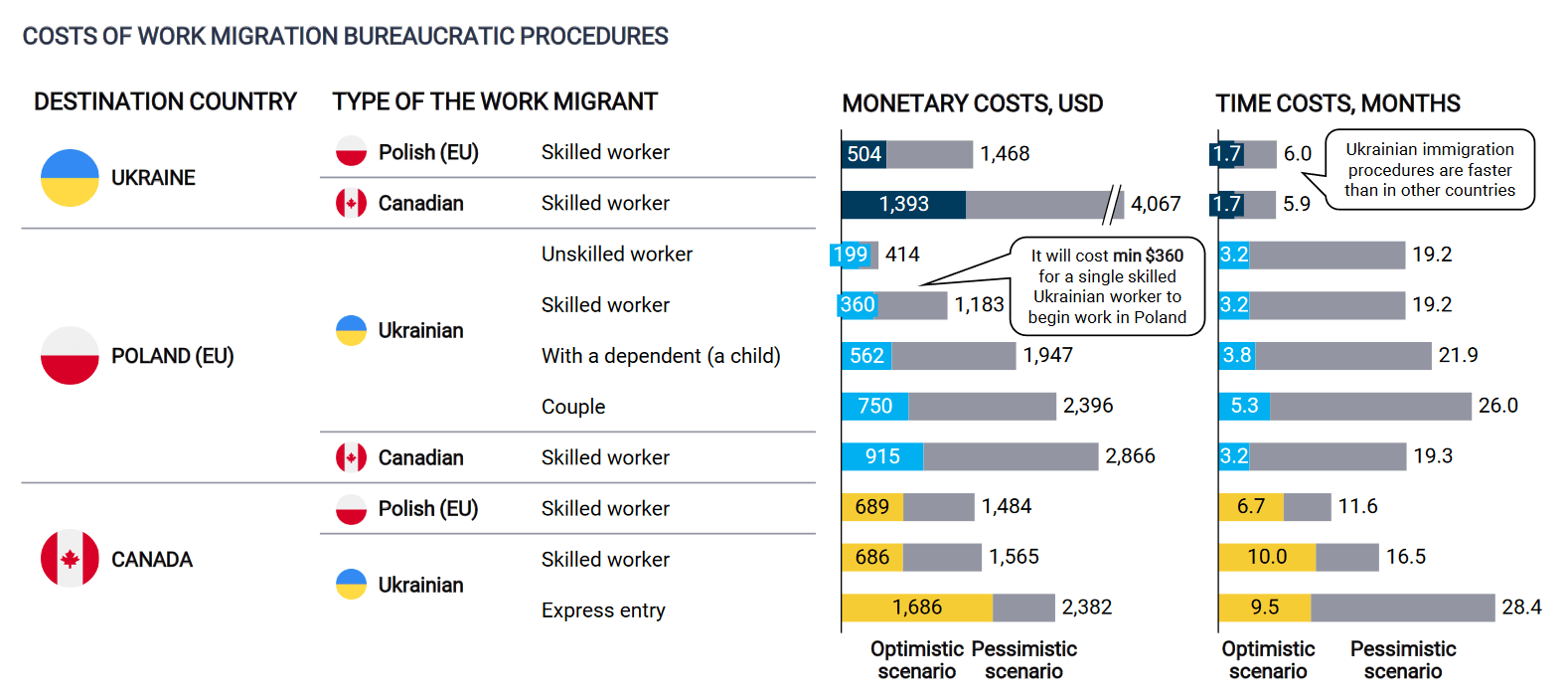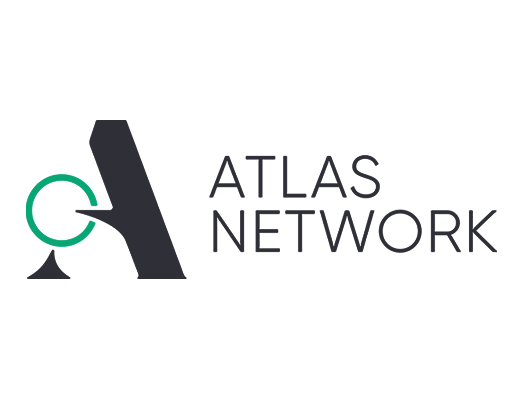
ABOUT
What is the Index?
Wage gains, distance, and migration policies are the main determinants of migration processes worldwide. However, the latter determinant is poorly studied in terms of its impact on the time and monetary costs that a work migrant must bear on a migration path. The International Work Migration Index is a comprehensive analytical tool designed to address this issue with a particular focus on bureaucratic procedures. The Index measures costs of each step of the work migration process across time and monetary dimensions.
Who can use the Index?
- Work migrants by making a balanced decision based on more accurate costs-benefit analysis of migration options
- Government policy-makers by analyzing bottlenecks in bureaucratic procedures, comparing migration costs relative to other countries
- Research institutions and organizations by conducting research on migration policies effectiveness
- Employers by determining the official steps and documents required
when hiring a foreign employee
LAUNCH EVENT
Live online launch event, featuring notable figures such as:
Per Bylund, Bryan Caplan, Tom G. Palmer, Jacek Spendel, Dmytro Lyvch, and Kate Shapovalenko.
RESULTS
- Considering the skilled migrant cases alone, bureaucratic procedures account for up to 60% of the total time costs of the migration path (for optimistic values) for Ukraine and Poland, and up to 90% for Canada.
- In all cases, indirect time costs that represent waiting time account for more than 94% of the total time costs of bureaucratic procedures.
- While in Poland and Ukraine cases (involving skilled migrants) direct monetary costs account for around 33-48% of total monetary costs (for optimistic values), in Canada, such costs could take up to 65%.
Click below to download the detailed analysis
METHODOLOGY
Total time costs
Direct time costs
Time a migrant spends on fulfilling certain action in the migration process.
- Market search | Time spent to look up for the relevant information.
- Travel | Time spent on going anywhere to complete a required action.
- Payment | Time spent to conduct the payment action.
- Submission | Time spent on documents submission.
- General | Time spent on actions that are not covered by the other direct time cost categories.
Indirect time costs
Waiting time that a migrant must bear as a result of third parties’ actions.
- Waiting time arising from public institutions’ actions | Arise from actions not dependent on a migrant but rather depend on a particular public institution.
- Waiting time arising from private organizations’ actions | Waiting time that the migrant must bear as a result of private organizations’ actions.
Monetary costs
Direct monetary costs
Direct monetary costs are expenses of a migrant which are direct payments within certain steps.
Indirect monetary costs
Migrant’s lost opportunity – earnings that a migrant would have obtained in case of pursuing current job instead.
UPDATES

Migration – a threat to society or a chance to grow? (live event with Bylund, Caplan, Palmer, Spendel, Shapovalenko and more)
ORGANIZER
Liberty International is an association of individuals and organizations dedicated to building a free and peaceful world, respect for individual rights and liberties, and an open and competitive economic system based on voluntary exchange and free trade. LI currently has members and representatives in over 100 countries.
SUPPORTER
Atlas Network is a non-governmental 501(c)(3) organization based in the United States that provides training, networking and grants for libertarian, free-market, and conservative groups around the world. It partners with about 500 organizations in nearly 100 countries.
PARTNER
EasyBusiness is a non-profit think tank established in 2014 by the Minister of Economy’s advisors on deregulation and aimed at improving the freedom of doing business in Ukraine.





